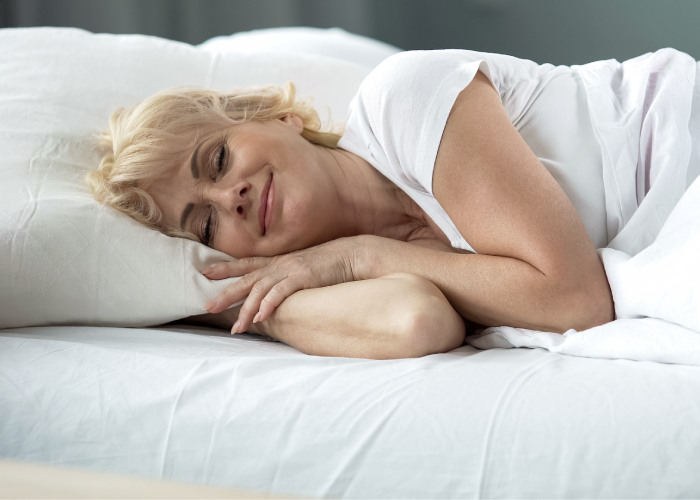Obstructive Sleep Apnea is a real (and serious) risk
For women, aging brings the frustration of sagging skin, crow’s feet, and flabby arms, but it also increases the risk of obstructive sleep apnea (OSA). In the same way that facial muscles atrophy with age, so do the muscles in our airways. During sleep, as the muscles relax further, the airway is more likely to collapses cause a cessation in breathing called an apnea.
Research studies have shown women are 3.4 times more likely to have sleep disorders after menopause. Prior to menopause, women have 1/3 the prevalence of obstructive sleep apnea as men. But after menopause, women have the same prevalence as men. However, women have different risk factors for OSA. (1)
For men, weight and high BMI (obesity) are the risk factors.
For women, the muscle changes we’ve described are just part of the picture. Hormonal changes also cause increased risk of sleep apnea in menopausal women. Estrogen increases slow wave sleep and REM which is the deep, restorative sleep that can be life changing. Progesterone is a hormone that acts as a respiratory stimulant, helping maintain the airway. As production of estrogen and progesterone decreases with menopause, sleep apnea risk increases. However, hormone replacement therapy (HRT), particularly estrogen, reduces the risk of OSA.
Take this to heart — literally
Treating sleep apnea is more important than sagging skin… it contributes to other heath conditions like hypertension, cardiac arrhythmias, and diabetes. A recent study of women linked poor sleep to a higher risk of heart disease. (2)
The good news is, sleep apnea can be easily and effectively treated with a positive airway pressure device (PAP) or oral appliance, and treatment for OSA is effective in reversing the risk of other diseases.
Eye cream isn’t the only thing we need to put on at night… a CPAP or Oral appliance is even more important!
Learn more: milleniumsleeplab.com/treatment
Contact Millennium Sleep Lab if you what to discuss your risk and get tested for sleep apnea without leaving your home!
(1) https://pubmed.ncbi.nlm.nih.gov/17566192/
(2) https://www.cuimc.columbia.edu/news/skinny-why-poor-sleep-may-increase-heart-disease-women
